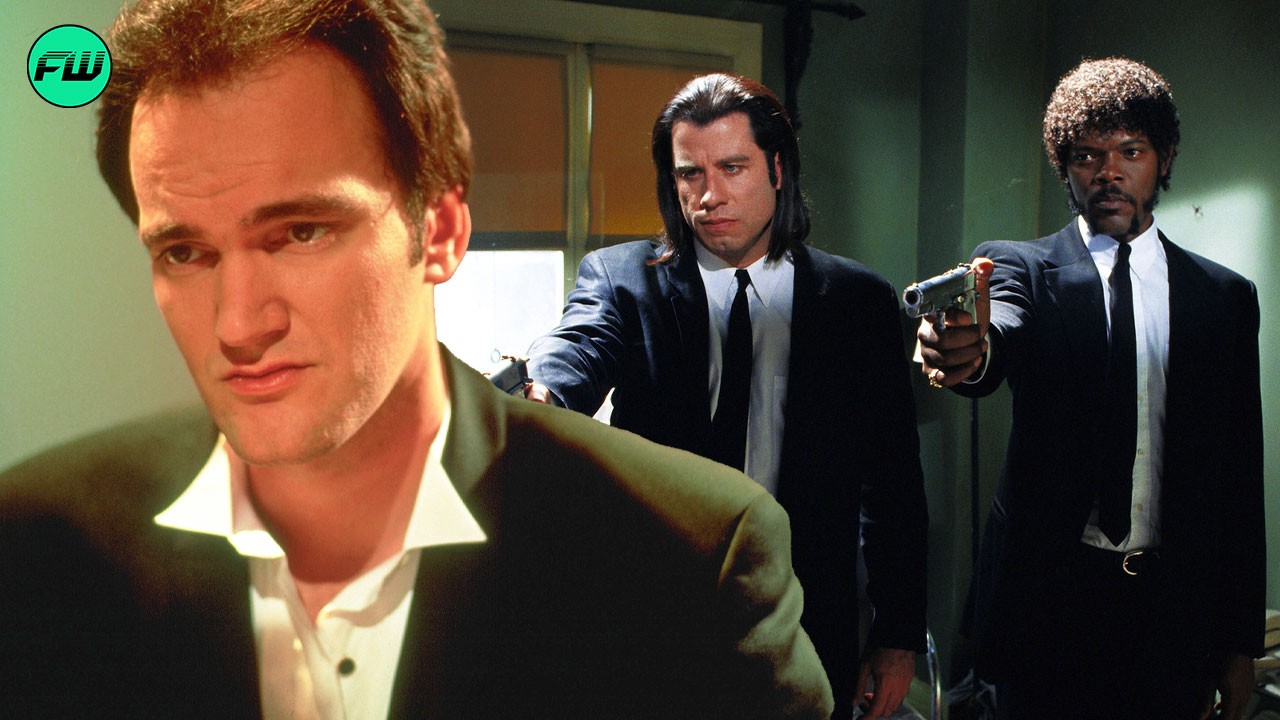If one was to compare two of the greatest cinematic products of the 1990s, it would be amiss not to elevate Forrest Gump and Pulp Fiction to the top of the list. But it was also these two cinematic giants that competed for the Oscars in 1995 with one coming out on top and giving rise to a never-ending debate that rages even 30 years later.
![Pulp Fiction (1994) [Credit Miramax]](https://fwmedia.fandomwire.com/wp-content/uploads/2024/05/13082304/Pulp-Fiction-1994-Credit-Miramax.jpg)
With Quentin Tarantino’s iconoclastic thriller and Robert Zemeckis’s comedy-drama turning 30 this year, fans look back to an era that produced classics that had no right being so good and established a standard that makes films today feel dim-witted in comparison.
Tom Hanks’ Forrest Gump Literally Rewrites History
Forrest Gump is a historical derivative that uses major moments in the history of American politics and social culture to ground its narrative and elevate the novelty of the protagonist’s arc. Sure, Gump taught Elvis how to dance, made John F. Kennedy laugh on national TV, and became one of the first millionaires due to Apple. The absurd complexity of the plot alone could make the audience sigh and giggle to themselves.

One could argue that the film highlights the foolishness of war through the satirical depiction of the Vietnam War and critiques segregation by contributing to the debate in a subtle yet meaningful manner. However, integrating history and politics into the plot only helped make Forrest Gump relevant, even though Zemeckis intended it as an ode to the 20th century.
Pulp Fiction, on the other hand, redefined cinema and portrayed a story that exudes more Hollywood glam and nostalgia than the real tinsel town itself. But the filmʼs Oscar snub reflected the Academyʼs long-held practice of shunning hyper-violent films to protect its reputation as enabling and glamorizing brutality over pleasantness.
Forrest Gumpʼs conservative tale that preaches that the American Dream is possible for everyone who dares to reach for it became the perfect poster boy for the Academyʼs faux ethics and a scapegoat excuse for refusing to acknowledge Tarantinoʼs genre-defying masterpiece.
Pulp Fiction Brings Oscar-Worthy Glamor Back to Hollywood
No matter how saturated the debate over Forrest Gump and Pulp Fiction has become, one can argue a dozen valid reasons why Quentin Tarantino’s classic should have won the Oscar over Forrest Gump. Despite their vastly different genres, the primary point that stands out is that the Tom Hanks film is an adaptation of the 1986 novel by Winston Groom while Pulp Fiction is an original story born from the mad genius brain of Tarantino.
After all, no amount of Bible-quoting and murderous Samuel L. Jackson can become an endearing and instantly iconic figure in modern pop culture without the skills of cinephile Tarantino himself. Moreover, the crime classic portrays a wide array of the decadent American culture, their pursuit of a twisted version of the American dream, and people’s desire for romance and happiness, despite their different backgrounds and no matter how rich or poor or idiotic they may be.
![Uma Thurman and John Travolta in Pulp Fiction [Credit Miramax]](https://fwmedia.fandomwire.com/wp-content/uploads/2024/05/13082653/Uma-Thurman-and-John-Travolta-in-Pulp-Fiction-Credit-Miramax.jpg)
Pulp Fiction brings in a palate of social drama interspersed with classic movie-making moments like Uma Thurman’s hyper-violent episode of a drug overdose that imprints themselves on the human brain. While Forrest Gump goes on a 3-year-long marathon to deal with rejection, Tarantino weaves a tale told from 4 different perspectives that weave and wade around a certain item whose mystery appeal transfixes the audience even 30 years later.
Quentin Tarantino’s four intertwining tales of crime, drama, love, and violence bring in a caricature of classic Hollywood characters – gangsters, boxers, hitmen, and robbers. But it is Tarantino who makes them special by endowing the mob enforcers with a penchant for philosophy, the robbers as adorably nervous and clumsy, the boxer with his own tragic tale of love and sacrifice, and an actress who dances like one of the cats from The Aristocats.
Tarantino’s script eradicates all linear and established rules of storytelling and dives into a roller coaster ride of emotions and entertainment rather than Tom Hanks’ controversially conservative and politically inclined movie about one man and his exceptional life. And that fact alone makes Pulp Fiction more deserving of the Academy Award than the singular tale of Forrest Gump.
Forrest Gump and Pulp Fiction are available for streaming on Paramount+ and Max respectively.



